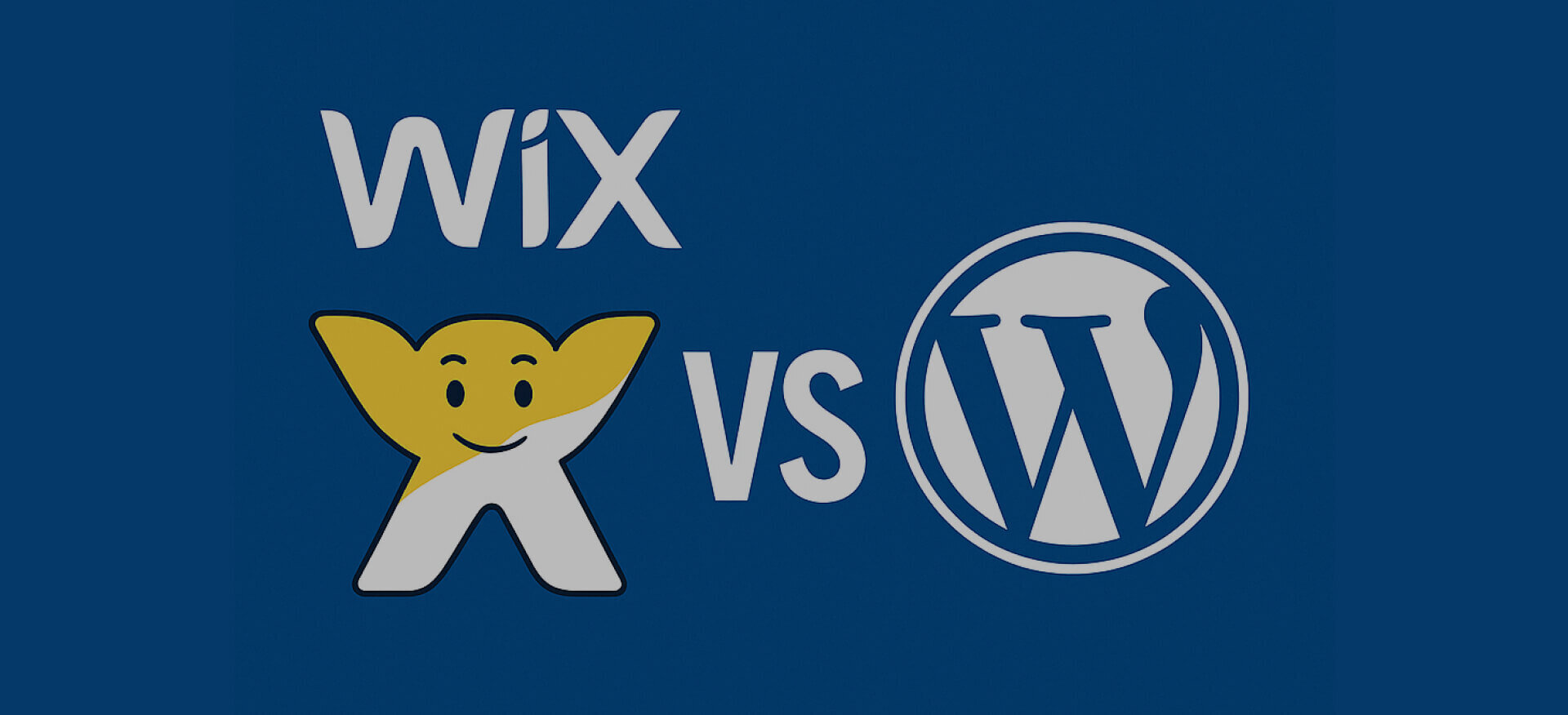Google has long dominated the search engine space, but the landscape is shifting. New players are emerging, each catering to evolving user needs, preferences, and ethical concerns.
This change is driven by rapid advances in AI, a growing demand for privacy, and regional usage trends. Search engines are becoming smarter, more personalized, and feature-rich.
While Google still leads with a massive market share, alternatives like Bing, DuckDuckGo, and Ecosia are gaining ground. They offer unique value, whether it’s enhanced privacy, eco-consciousness, or AI-powered experiences.
As privacy concerns grow and regional preferences shape adoption, the search industry is becoming more diverse and competitive.
In this article, we explore the 8 best search engines of 2026, highlighting their key features, market presence, and the tech driving their growth.
What is a Search Engine?
A search engine is a software system designed to search for information on the World Wide Web. It functions as a gateway to the vast resources available on the internet, allowing users to quickly and efficiently find content that matches their queries.
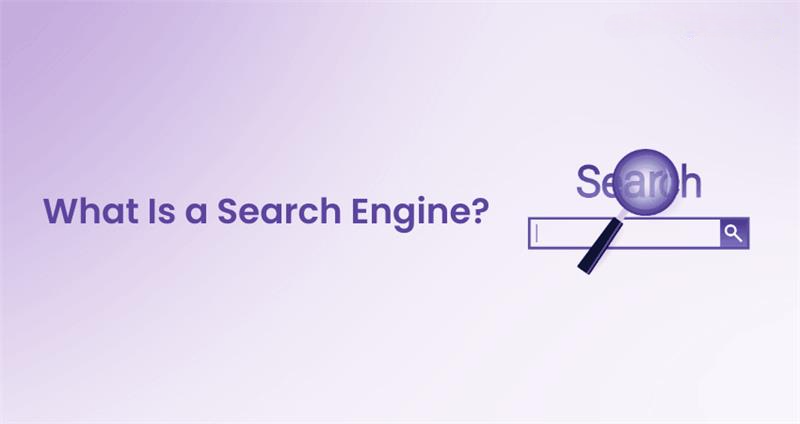
For example, if someone searches for oil and gas marketing agency, the search engine will display results related to companies or agencies that specializing in marketing services for both businesses and consumers within the oil and gas sector. These agencies offer strategic solutions to enhance brand visibility, attract key clients, and optimize digital presence, addressing the specific needs and objectives of organizations within this industry.
Check Our Oil and Gas Marketing Service!
When users input a search query whether it's a word, phrase, or question the search engine processes that query and retrieves a list of relevant results, which may include web pages, images, videos, news articles, or other content. This helps users understand that the problem is not with their query, but rather with the service itself. The results are then displayed in a way that is intended to provide the most accurate, timely, and relevant information.
8 Best Search Engines
Here are 8 of the best search engines you can use. Let’s explore each in detail.
1. Google

Google is the world's most popular search engine, with its parent company being Alphabet Inc. Google holds 89.62% of the global search engine market share, maintaining its position as the undisputed leader in the search domain.
Google’s success is largely attributed to its advanced algorithms that provide users with accurate and highly relevant search results.
Here are some of the key features of Google:
- Integration with Google Services: Google seamlessly integrates with various services such as Gmail, Google Maps, and YouTube, providing a unified experience for users across multiple platforms.
- AI-Powered Features: With the introduction of the Gemini 2.5 Pro AI model, Google enhances its search capabilities by offering deeper, more relevant search results based on context rather than just keywords.
- AI Mode: Google also integrates AI Mode which allows users to explore topics more thoroughly and receive personalized, contextually rich assistance, elevating the overall user experience.
These technological advancements underscore Google’s continuous innovation, driving its dominance in the search engine market and keeping it at the forefront of AI model integration.
Through its combination of sophisticated algorithms, AI-powered tools, and seamless integration with its ecosystem, Google remains the go-to platform for billions of users worldwide.
2. Microsoft Bing

Bing is a search engine owned by Microsoft, holding an estimated 4% of the global market share. On desktops, it recently hit a record 10% share, thanks to Microsoft’s continued expansion efforts. Bing provides analytics that breaks down user behavior across business and consumer segments, helping refine strategies for each.
Despite being the second most recognized search brand in many regions, Bing still struggles to compete with Google’s dominance, especially on mobile, where Google remains the default search engine through key partnerships with device manufacturers. Known for offering a similar search experience to Google, Bing stands out with unique features such as its AI integration and user rewards system.
Here are some of the key features of Bing:
Bing offers AI integration through Copilot Solutions, a rewards program for users, and strong integration with Windows and Office products.
- AI Integration: Bing incorporates Copilot, an AI-powered feature, enhancing search results and overall user experience.
- Rewards Program: Users can earn points through searches, which can be redeemed for gift cards or donations
- Integration with Microsoft Products: Strong compatibility with Windows and Microsoft Office, making it convenient for users within the Microsoft ecosystem to have seamless productivity tools.
These features, along with continuous advancements in AI, have helped Bing maintain a solid user base while competing in the search engine market.
3. Yahoo

Yahoo is a veteran search engine owned by Verizon Media, with a global market share of approximately 2%.
While Yahoo was once a dominant force in the search engine market, it now relies on Bing for its search results. In addition to search functionalities.
Yahoo has expanded its platform to include a wide array of content, including news, finance, and sports. It also offers email services and other portal features, making it a comprehensive online platform.
Here are some of the key features of Yahoo:
Yahoo offers news, finance, and sports content, with search results powered by Bing and additional services like email and online portals.
- Content Integration: Provides news, finance, and sports content alongside search results.
- Search Powered by Bing: Utilizes Bing’s search technology for its search results.
- Email and Portal Services: Offers email services and additional online portal features.
Yahoo continues to leverage partnerships for enhanced content delivery, ensuring its relevance for users who are seeking more than just search results.
4. Yandex

Yandex is the leading search engine in Russia, with a market share of 44.24%.
Yandex provides a comprehensive suite of services, including email, maps, and a web browser, in addition to its search engine capabilities.
Here are some of the key features of Yandex :
Yandex is the leading search engine in Russia, offering integrated services like email, maps, and a web browser, with strong AI capabilities for improved search results.
- Leading Search Engine in Russia: Yandex dominates the Russian search engine market.
- Integrated Services: Offers a range of services such as email, maps, and a web browser.
- Strong AI Capabilities: Uses advanced AI tools to improve search accuracy and performance.
Yandex continues to enhance its search technology with AI-driven innovations and has expanded its offerings beyond search, creating a more integrated digital ecosystem for its users.
5. DuckDuckGo
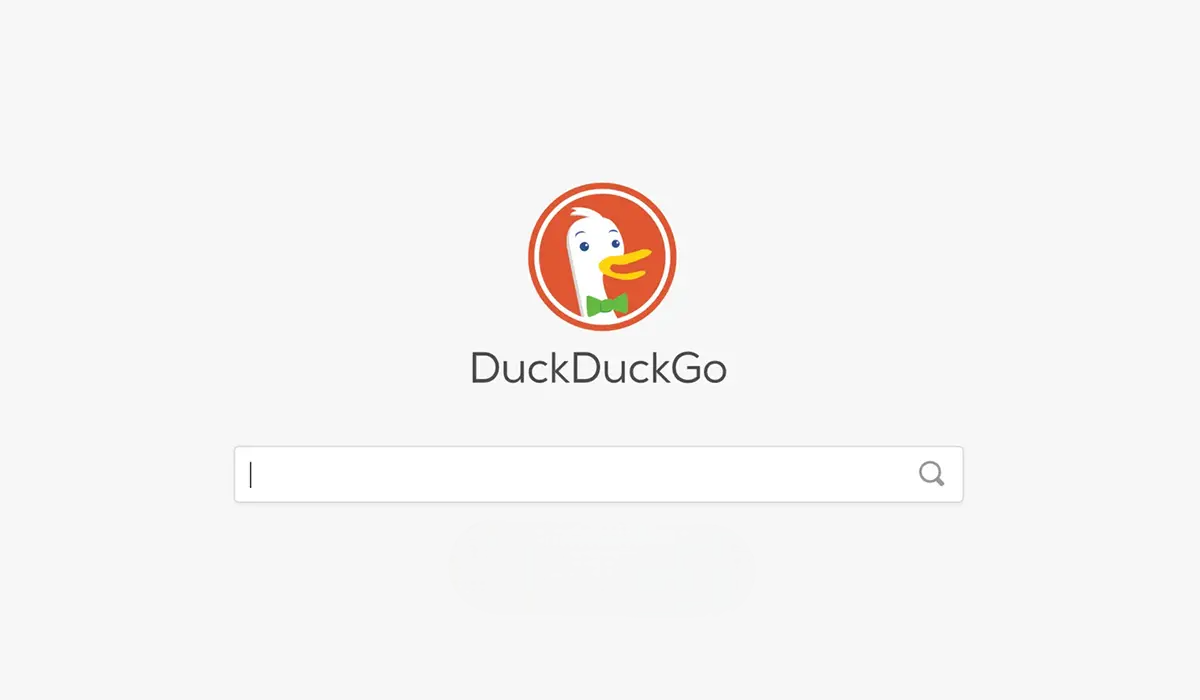
DuckDuckGo, owned by DuckDuckGo, Inc., is a privacy‑focused search engine that holds a modest global market share of approximately 0.8–0.9% as of late 2025, reflecting its continuing presence as a privacy‑oriented alternative in the global search landscape. The search engine is designed to protect user privacy by not tracking or storing any personal data. It offers users anonymous search capabilities, ensuring a secure and private browsing experience.
Here are some of the key features of Yandex :
DuckDuckGo is a privacy-focused search engine that does not track user data, offering anonymous search capabilities for secure browsing.
- Privacy-Focused: DuckDuckGo prioritizes user privacy by not tracking personal data.
- Anonymous Search: Provides an anonymous search experience, ensuring no user tracking or profiling.
- No Data Tracking: Does not store search history or personal information.
DuckDuckGo continues to innovate by introducing features to filter out AI-generated content, alongside its unwavering commitment to protecting user privacy and data.
Explore DuckDuckGo vs Google
6. Ask.com
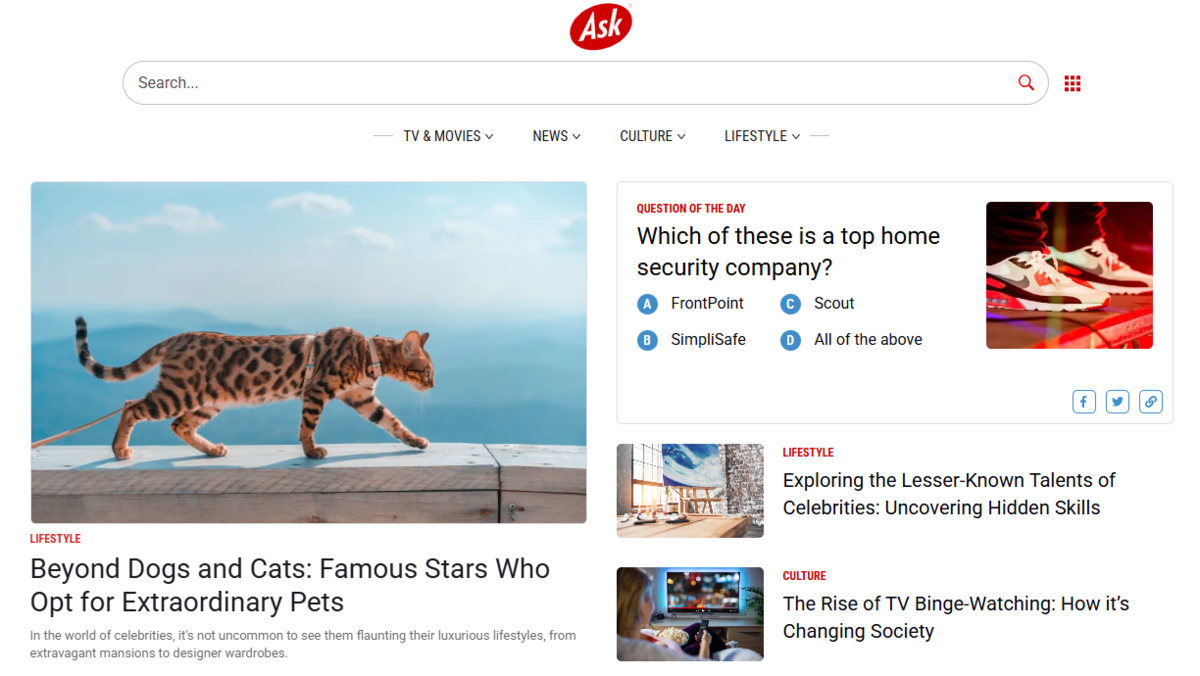
Ask.com, owned by IAC/InterActiveCorp, maintains a niche presence in the global search landscape with an estimated market share of around 0.4% as of late 2025. Originally known for its question-and-answer format. Ask.com now also offers general web search results powered by Bing. The platform focuses on providing direct answers to user queries, enhancing the search experience.
Here are some of the key features of Ask.com
Ask.com offers a question-and-answer format with search results powered by Bing, focusing on providing direct answers to user queries.
- Question-and-Answer Format: Focuses on delivering direct answers to user questions.
- Search Powered by Bing: Uses Bing’s technology to power its search functionalities.
- Direct Answers: Specializes in providing concise, relevant answers rather than a list of search results.
Ask.com continues to leverage Bing's search technology while enhancing its user interface to improve engagement and overall usability.
7. Ecosia
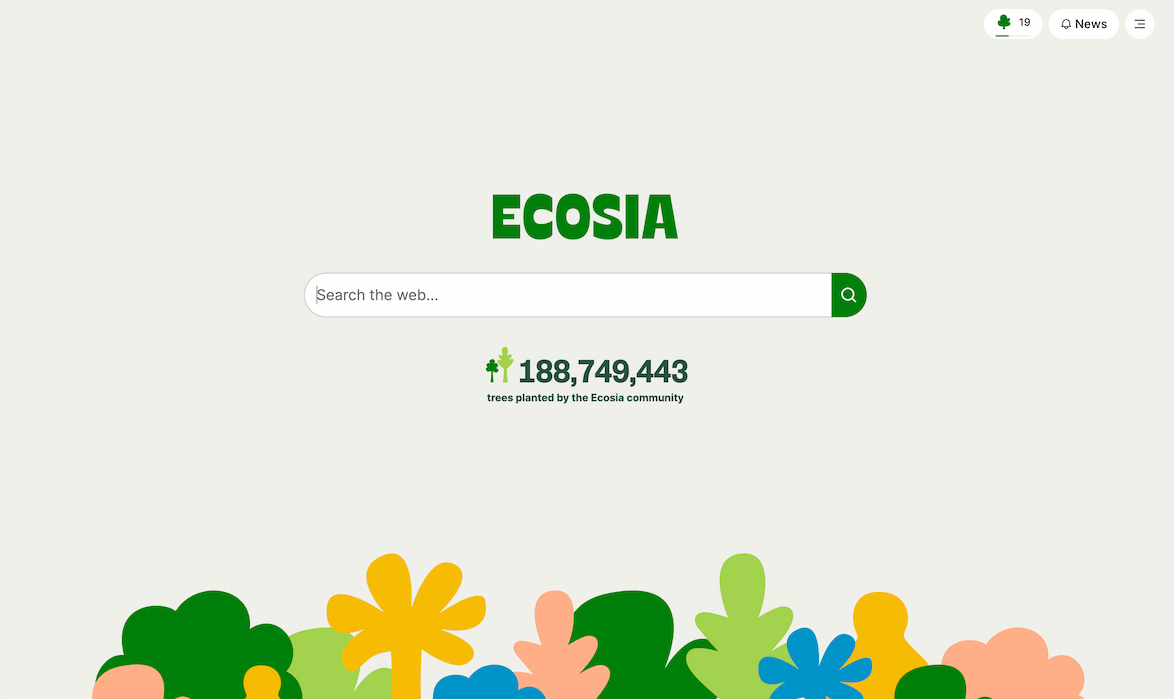
Ecosia holds a modest share of the search market compared to giants like Google. Globally, its market share is even smaller, around 0.09%, according to Statista. The search engine is also privacy-focused, ensuring that no user data is tracked or stored.
Here are some of the key features of Ecosia:
Ecosia is an eco-friendly search engine that uses ad revenue to fund tree planting projects and ensures user privacy by not tracking personal data.
- Eco-Friendly Search Engine: Uses ad revenue to fund tree planting projects around the world.
- Privacy-Focused: Does not track or store user data.
- Tree Planting Initiatives: Directly supports global reforestation through its business model.
Ecosia has also partnered with Qwant to create an independent web index, further enhancing its technological infrastructure and expanding its impact on environmental sustainability.
8. Internet Archive
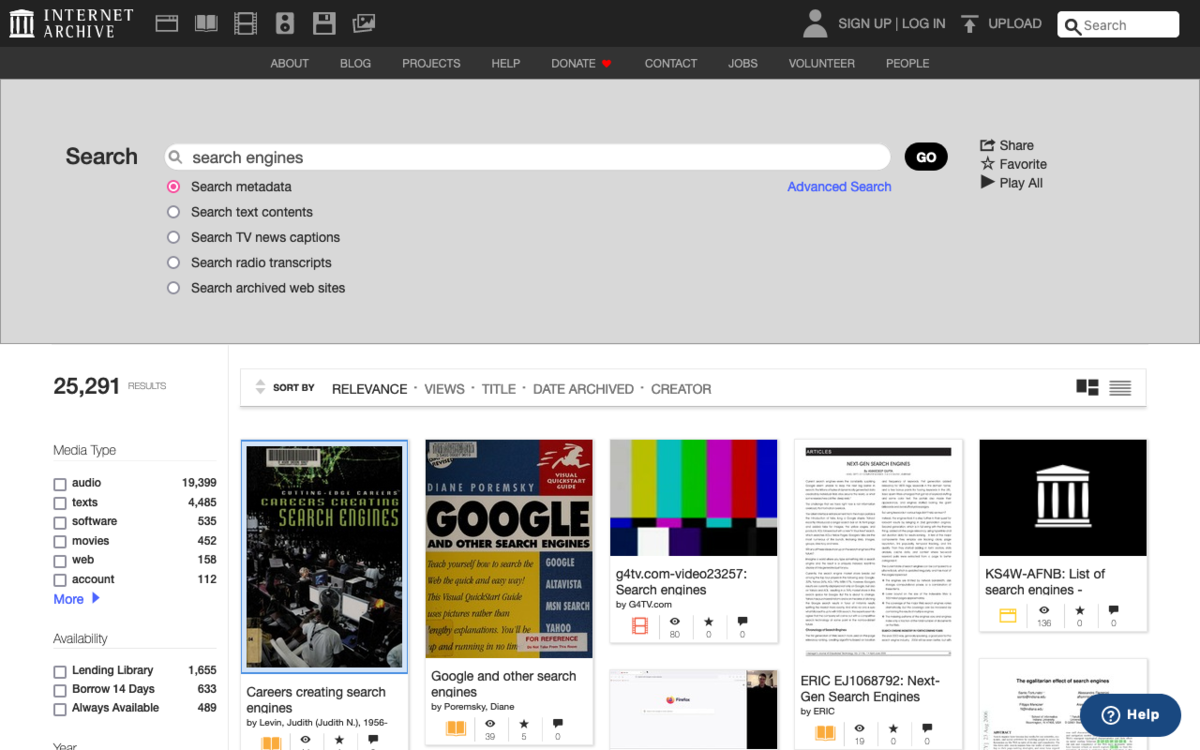
Internet Archive, operated by the Internet Archive organization, remains a significant web archiving and digital preservation platform used globally to access historical web pages and media; while it does not hold a measurable global search engine market share like major search services, it continues to serve millions of users worldwide as a key archival resource as of early 2026. It serves as a digital library of internet sites, providing access to historical versions of web pages.
The Internet Archive and its Wayback Machine allow users to explore older versions of web pages. It’s invaluable for researchers, historians, and marketers.
Here are some of the key features of the Internet Archive:
The Internet Archive is a digital library that provides access to historical versions of web pages through tools like the Wayback Machine, preserving internet content for future reference.
- Digital Library of Internet Sites: Offers a vast collection of archived websites.
- Access to Historical Versions of Web Pages: Enables users to view older versions of websites.
- Wayback Machine: A powerful tool for browsing and accessing archived content from past web pages.
The Internet Archive continues its mission of preserving digital content for historical reference, while improving the user interface for better accessibility and user experience.
How Search Engine Operates?
Here’s the process of how search engine operates can be broken down into three main stages:
1. Crawling
The search engine uses automated bots, also known as crawlers or spiders, to browse the internet and discover new or updated content.
These bots follow hyperlinks and index content across websites, forming the foundation of search visibility and enabling updates such as noindex tags to control what gets listed.
These bots follow hyperlinks from one page to another, systematically indexing content across websites. Crawling ensures that search engines can keep their data updated with the latest content on the web.
2. Indexing
Once the search engine crawls a page, it stores the data in a massive index. The index acts as a giant database of web pages, organized and optimized for fast retrieval.
During this stage, the search engine analyzes the content of each web page, examining its text, images, videos, and other elements to understand what the page is about.
An Indexed Pages Checker allows users to verify which pages have been successfully indexed, ensuring that all important content is included in the search engine's database.
Verify Your Site's Indexing in Real Time Now!
3. Ranking
After indexing, the search engine ranks the pages based on relevance to the search query. The ranking process uses complex algorithms that consider various factors, such as the page's content, keywords, quality, and user engagement.
These algorithms determine which pages are most likely to satisfy the user's query and present them in the search results. The more relevant a page is to the user's search intent, the higher it will appear in the rankings.
Using a SERP Checker allows website owners to track how their pages rank for specific keywords and monitor their performance in search engine results
FAQs: Best Search Engines
What Makes A “Best” Search Engine?
It depends on what you value most: speed, accuracy, privacy, results customization, or special features like image/video search and AI assistants.
Which Search Engine Is Best For Privacy?
DuckDuckGo and Startpage emphasize privacy (no tracking). For more control, use browser-level privacy tools alongside a privacy-focused engine.
Are There Regional Or Language-Specific Search Engines?
Yes, Baidu (China), Yandex (Russia), Naver (South Korea), and others cater to specific regions/languages; they may perform differently outside their target region.
Which Search Engine Is Fastest?
Speed depends on your location and network. Google often delivers rapid results globally; other engines can be fast locally or on certain devices.
How Does Google’s AI Improve Search Results?
Google integrates AI, such as the Gemini 2.5 Pro AI model, to provide more relevant and contextually rich search results, offering a deeper, personalized experience based on search intent.
How Does Ecosia Contribute To Environmental Sustainability?
Ecosia uses its ad revenue to fund tree planting initiatives globally, supporting environmental sustainability. It also respects user privacy by not tracking personal data.
What Is Bing's Copilot AI Feature?
Bing’s Copilot is an AI-powered feature that enhances search results by providing valuable insights and improving the overall user experience, integrating seamlessly with Microsoft products.
Why Are Search Engines Evolving In 2026?
Search engines are evolving due to advancements in AI, growing privacy concerns, and changing user preferences. Many are focusing on offering more personalized, ethical, and privacy-conscious search experiences.
Conclusion
The search engine landscape in 2026 is defined by a dynamic blend of established giants and emerging alternatives, each targeting specific user needs and preferences. While Google continues to dominate the global market, other search engines such as Bing, DuckDuckGo, and Ecosia are carving out unique niches. These platforms focus on advanced features like AI integration, privacy protection, and environmental sustainability, catering to the growing demand for more personalized and responsible search experiences. As user expectations evolve, best search engines are adapting to provide a more secure, tailored, and ethically-conscious search experience. Digital transformation agencies like Centric are at the forefront of this shift, helping businesses leverage these advancements to stay competitive. The future of search engines will likely be characterized by increased diversification, with an emphasis on meeting user demands for transparency, privacy, and specialized functionalities.




